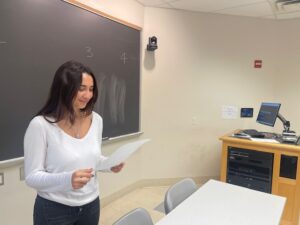 I entered the ceremonial hall, holding my father’s hand tightly. While he made me sit down in my seat, he reminded me of how special I should feel as the 27th generational descendant of Rumi. As a 9-year-old girl, I remained oblivious to the significance of this title.
I entered the ceremonial hall, holding my father’s hand tightly. While he made me sit down in my seat, he reminded me of how special I should feel as the 27th generational descendant of Rumi. As a 9-year-old girl, I remained oblivious to the significance of this title.
Did this make me any different than my peers? Did it mean that I would be more religious than them?
The ceremonial hall turned pitch black, and we started to hear the mystical music coming from the “ney”. Not a word could be heard from the audience, who had gathered from various parts of the world to participate in this transcendental journey. Expressions of confusion slowly started appearing on my face as twelve figures covered in black coaks and tall conical hats entered the room, bowing their heads down.
What was their difference than all the culty religious groups we were afflicted with from the news? Were they also one of those who exploited religion to oppress women?
I could see the way my father’s eyes lit up in response to these figures, and decided to keep quiet out of respect. Growing up in Turkey, the midst of political backlash resulting from religion, I subconsciously had programmed myself to have a natural aversion towards Islam. Even though I was legally Muslim, and had multiple family members strictly adhering to the “rules” set by the religion, I never seeked pride in identifying as Muslim. When revealing my family’s religion to anyone, I never forgot to add the word “legally” to highlight that it was not a personal preference.
How could I be the same as those who used prophecies from the Quran to excuse violence towards little girls? Or those who did not give permission for freedom of speech under the claims of religious conservatism?
I dreamt of a republic free of religious rules, extremists, and oppression. The first step to achieve this dream was rejecting religion, and that meant rejecting all aspects of it.
As I continued gazing at the stage in confusion, the figures took off their long black coaks, which revealed them wearing milky white robes reaching their feet underneath. One hand facing the floor, the other one facing high up the sky, they started turning around themselves. Their heads tilted at a twenty-five-degree angle, the figures whirled non-stop, not even stumbling. 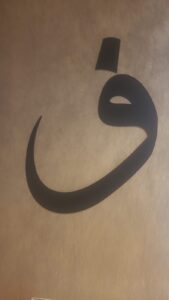
How did they not fall? Was this another illusion of religion?
The discussion I had with my father on the way back from the ceremony altered my perception of our religion, once and for all. Ever since that day, I truly identify as a Sufi.
My Values
Sufism for me, is not just a rule book to be followed. It transcends the mere adherence to a set of principles. It is not a rigid framework for control, method of inhibition, nor a source for conflict. It is my tradition and whole identity. It is peace. It is compassion. It is generosity.
Just as the Whirling Dervishes shed their dark cloaks to reveal pure white garments, Sufism teaches me to seek purity in all aspects of life. One aspect taught to me by my family through Rumi’s poetry was this idea of inner purification. They showed me that the real value in life was not seeking selfish intentions or ego-driven values. The true significance was wishing for continuous self-growth and good for others.
For me, that meant knowing yourself first.
“You are searching the world for treasure, but the real treasure is yourself.” – Rumi
As I was reminded of Rumi’s sayings when I was being tucked into bed every night, I seeked to look for the “treasure” within myself. I cannot say that this was an endpoint I reached, but it is a path I follow every day. This is a path of striving to reveal the inherent treasures within my own being. A path of love and spiritual unification. Finding love to give, areas to grow, and values to share. 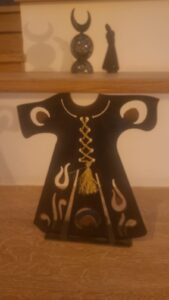
“In real existence there is only unity.” – Rumi
As the Dervishes never whirl alone, I was also taught to seek unity with others in anything I hope to achieve. From inviting neighbors for Ramadan dinners to sharing my notes for classes I take at Penn, this aspect of collaboration is another value I hold engraved in my heart. This is also why I identify strongly as a Sufi, but not as closely with any other religion. Sufism reflects universal unity and communal harmony for me. It is an ideology in which no individual is forced to impose certain rules other than holding basic humane values benefiting the whole society.
Would war over religion still exist if all Muslims followed Sufi values? What if everyone just seeked understanding for one another, instead of imposing religious standards under the cover of “spiritualism”?
I still have such lingering thoughts in my mind whenever I see conflicts between religious extremists and modernist individuals in Turkey. However, over the years, I learned to separate certain conservative aspects of Islam from the spiritual values I support, mainly fueled by Sufism.
Progressing With the Ideology
These teachings are reminded to me every day. All images in this essay show my home in Istanbul, covered by Sufi artwork. From statues of Whirling Dervishes to an abstract painting of Rumi, each work holds a different significance of reflecting the teachings of Sufism. They also serve as reminders of the value Rumi holds to my family, proving to me every day that I should be working to understand his ideology better. 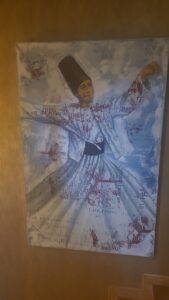
Studying in the US and being far away from home, I fear detaching from values taught so deeply by my family. I feel the extreme gratitude of being in the same lineage of such an important figure not only spiritually, but also in literature and tradition. Every time I am back in Istanbul, I visit the International Mevlana Foundation and participate in their various workshops. Ranging from music workshops to education sessions on Sufism, I obtain the opportunity to interact with numerous people from different ages and backgrounds who are inspired by Rumi.
This ideology is the comforting embrace of my family’s teachings, the vibrant colors of the artwork adorning my home, and the rhythm of my daily life. As I navigate through my life, whether in the busy streets of Istanbul or the chaotic halls of Penn, Rumi’s teachings guide me with its timeless wisdom and profound insights.
I’m reminded of the deep-rooted significance of Sufism in my life every day. It is not just about spiritual enlightenment; it is about finding peace in the midst of chaos, compassion in the face of adversity, and unity in a world that often seems divided. As I walk this path, I am grateful to be guided towards a deeper understanding of myself and the world around me.
*
(The images are from Esra’s house in Istanbul)

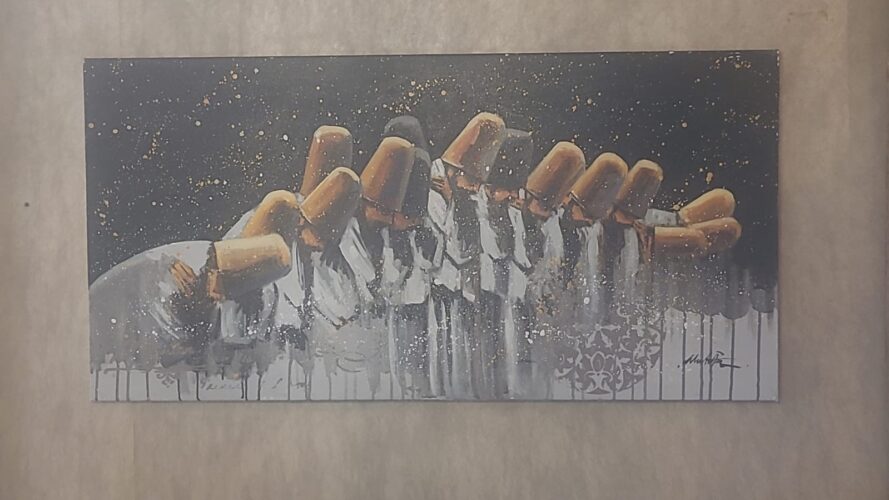

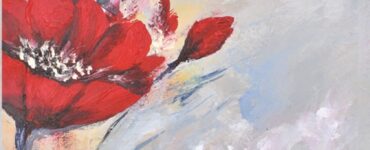



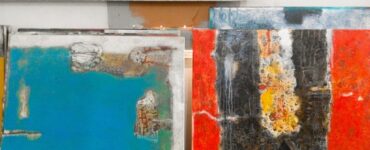

Very impressive text, it reflects sufi, the way of life.
👏👏👏అభినందనలు.